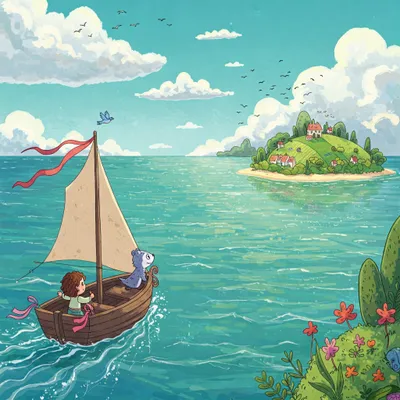My Bonnie Lies over the Ocean

Lyrics
My Bonnie lies over the sea,
My Bonnie lies over the ocean,
Oh, bring back my Bonnie to me.
(Chorus)
Bring back, bring back,
Oh, bring back my Bonnie to me, to me.
Bring back, bring back,
Oh, bring back my Bonnie to me.
Last night as I lay on my pillow,
Last night as I lay on my bed,
Last night as I lay on my pillow,
I dreamt that my Bonnie was dead.
(Chorus)
Bring back, bring back,
Oh, bring back my Bonnie to me, to me.
Bring back, bring back,
Oh, bring back my Bonnie to me.
Oh blow, ye winds, over the ocean,
Oh blow, ye winds, over the sea,
Oh blow, ye winds, over the ocean,
And bring back my Bonnie to me.
(Chorus)
Bring back, bring back,
Oh, bring back my Bonnie to me, to me.
Bring back, bring back,
Oh, bring back my Bonnie to me.
History and Meaning
"My Bonnie Lies over the Ocean" is widely recognized as a traditional Scottish folk song that has also become a beloved children's song throughout Western culture. While its precise origins remain uncertain, speculation places its beginnings in the 18th century. The first documented publication as sheet music occurred in 1881 under the title "Bring Back My Bonnie to Me," published by Charles E. Pratt under the pseudonyms H. J. Fuller and J. T. Wood. Evidence suggests the song was already circulating and popular during the 1870s, prompting Pratt's publication. Following its formal release, it gained considerable popularity, particularly among college singing groups in both Britain and America. An earlier English tradition song, "My Barney Lies over the Ocean," featuring a slightly different melody, might be an antecedent, possibly adapted from a stage song favored by Irish comedians in the 1860s.
A persistent and romantic theory connects the song's subject, "Bonnie," to Charles Edward Stuart, famously known as "Bonnie Prince Charlie." This interpretation places the song's origins in the aftermath of the failed Jacobite rising of 1745. Following the decisive defeat of Jacobite forces at the Battle of Culloden in 1746, Prince Charles fled Scotland and lived in exile, primarily in France. According to this theory, his loyal Jacobite supporters may have sung "My Bonnie Lies over the Ocean" as a lament expressing their longing for his return and the restoration of the Stuart monarchy. The ambiguity of the word "Bonnie"—meaning both "pretty" and serving as Prince Charles's epithet—could have allowed Jacobite sympathizers to express potentially seditious sentiments disguised as a simple song of longing. While this historical connection lacks definitive proof, its persistence demonstrates how folklore often intertwines with significant historical events and romanticized national figures.
Regardless of specific origins, the core emotional power of "My Bonnie Lies over the Ocean" lies in its expression of longing, separation, and the pain of distance. The repetitive refrain, "Bring back, bring back / Oh, bring back my Bonnie to me," underscores an intense yearning for reunion with someone dear who is across the sea. This universal theme allows the song to resonate with listeners experiencing any form of separation, whether romantic distance, emigration, loss, or political exile. The lyrical ambiguity regarding "Bonnie's" identity and the reason for separation has likely contributed to the song's enduring appeal, allowing listeners across different contexts to project their own experiences and emotions onto the song.
"My Bonnie Lies over the Ocean" has enjoyed remarkable cultural longevity, recorded by artists spanning numerous genres. Notable recordings include Tony Sheridan featuring The Beatles (1961/62), Ray Charles (1958), jazz interpretations by Ella Fitzgerald, instrumental versions like Duane Eddy's "Bonnie Come Back" (1960), and Pete Seeger's labor movement adaptation. Beyond formal recordings, it became entrenched as a children's song and campfire favorite, sometimes accompanied by a simple game where participants stand or sit upon hearing the word "Bonnie." Its familiarity has led to inclusions in popular culture, such as Bugs Bunny cartoons ("My Bunny Lies Over the Sea") and Woody Woodpecker animations.